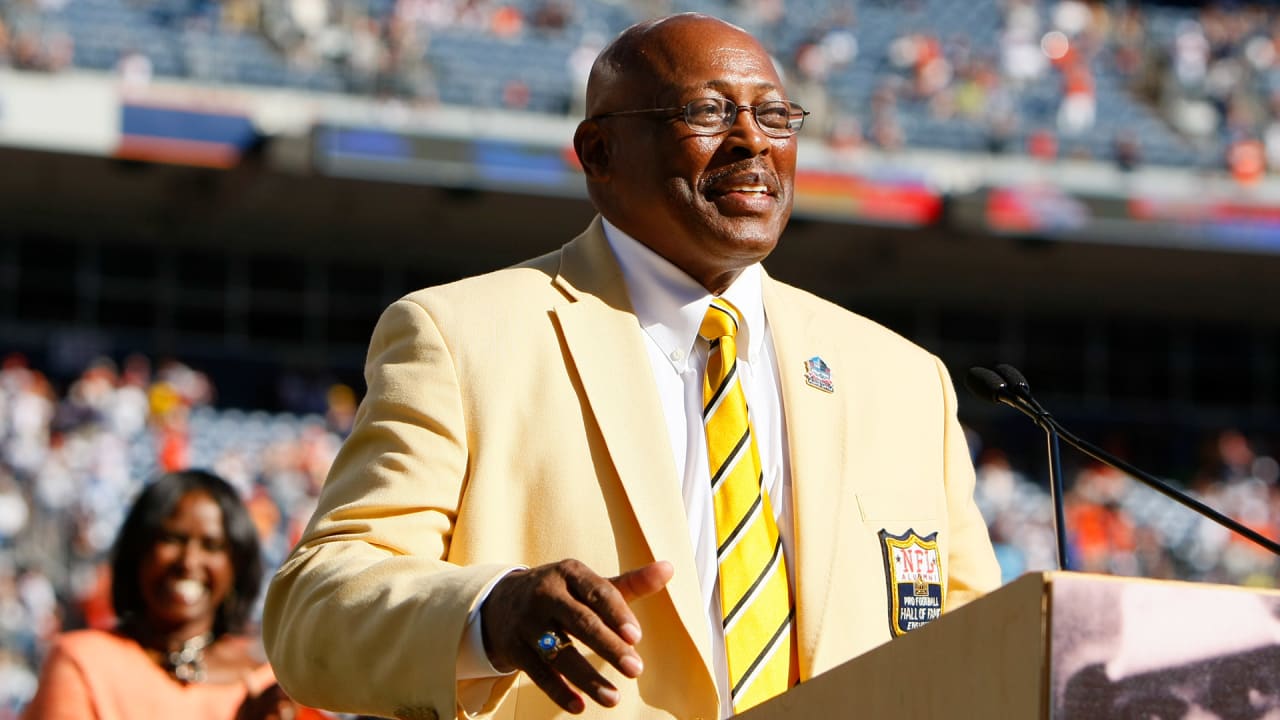
How do you measure the soul of a city?
In the case of the Mile High City, I think the Denver Broncos have been the defining element to the answer of that question. Since 1960, the Broncos have represented the city, state and region proudly.
And the one individual who paved the way in the early years was Floyd Little.
Floyd Little symbolized pro football in Denver for many years, certainly during the period before the Broncos made the playoffs and became annual championship contenders.
So meager was the state of the Denver franchise over most of its first two decades that Little was given and has since carried the nickname, "The Franchise." He was pegged with that nickname by this author back in the days when I was in radio, before my 46-year career working in pro sports.
That's where I first met Floyd.
I was a young radio sports reporter for KBTR in the early 1970s, and he treated me like I was a seasoned pro. He could not have been more polite or gracious.
Over the years we talked a lot, and he shared the defining moments of his early years, before he carried a time zone on his back as the face the entire region.
Little's beginnings were humble, and they created a value system within him that was the ideal of goodness and would last a lifetime, providing a positive influence to everyone he met along the way.
"Very, very difficult and very challenging," he once recalled. "There was a lot of adversity, and I was able to deal with those adversities on a daily basis to get better.
"I think the situation that really stands out with me was one when I was young. Growing up, my mom had six kids — I lost my dad when I was 5 or 6 years old — and I remember one day coming home from school and they had evicted us from our apartment. Our furniture was out on the sidewalk and the kids from the neighborhood were jumping up and down on the furniture and my mom was sitting on the couch crying.
"I remember putting my arms around her and telling her that as long as I lived they would never do that again to her and she would never be without a place to stay."
Floyd continued, "I got a job selling papers, shining shoes, working in a grocery store, and doing all that I could to be the leader of my family. I learned skills, leadership skills, early on in life because my mom was put on the street, and I found a place for her to stay, and then worked for the people that owned the building."
He grew up fast and greatness was growing within him.
An accomplished high school athlete, Little felt that his academics needed refinement to compete academically at the best colleges. "I went to a military school [the Bordentown Military Institute] and learned to do the necessary things that were important in terms of discipline integrity and character, all of those things that are intangibles."
His value system and athletic abilities were such that he was personally recruited by U.S. Army General Douglas MacArthur to go to West Point in a meeting at the fabled Waldorf-Astoria.
He could become a general, MacArthur told him.
But Floyd had already promised Heisman Trophy winner Ernie Davis that he would go to Syracuse. And when Davis later died of leukemia, Little felt honor-bound to attend Syracuse.
There he wore the number 44 that Davis and Jim Brown had worn before, and there are statues of all three men outside Syracuse athletic facility.
Little fondly remembered the impact Davis made on him. "The first African-American to win the Heisman, he was the pillar of what I wanted to be and what my family wanted me to be. He was the picture of what you would want anybody to be."
Floyd continued, "Davis talked about Jim Brown and his influence on him. His obligation to replace Brown, and to replace himself with someone like me was inspiring."
Before Little and Denver fell in love at first sight, the East Coast native recalled to me his reaction to the news that he had been drafted by Denver.
"I was not happy," Little recalled. "When Denver drafted me I was like, 'Where the hell is Denver?' I could not believe it when I got the call from [head coach] Lou Saban that they drafted me to the Denver Broncos. I was like, 'You have got to be kidding me.' I could not believe it 'til I flew out here to meet Lou Saban. I was just amazed and fell in love with Denver the first day that I saw it."
And Denver fell in love with him right away. The first bona fide national superstar in Broncos history, Floyd was coming to a team and city hungry for success and an identity in pro football.
He supplied the cornerstone for building franchise respect by maintaining a sterling, Hall of Fame standard of play and a quality of leadership matched very few times since.
Every time I ever called Floyd, he answered the phone or called me back. He never said no to a request and always delivered more than he promised.
I could go on and on, but you have already read the great statistics and moments of his career over and over.
Some guys, you know you will miss them forever. Floyd Little is like that for me.
"Love" - Google News
January 06, 2021 at 01:05AM
https://ift.tt/3hMwk7d
Sacco Sez: Why Denver fell in love with Floyd Little, and vice versa - DenverBroncos.com
"Love" - Google News
https://ift.tt/35xnZOr
https://ift.tt/2z10xgv
Bagikan Berita Ini














0 Response to "Sacco Sez: Why Denver fell in love with Floyd Little, and vice versa - DenverBroncos.com"
Post a Comment